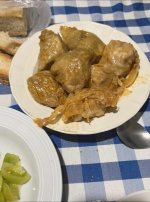I've recently developed a fascination with Greek wines and am eager to explore their potential pairings with various cuisines. Greek wines, with their rich history and unique grape varieties, offer a tantalizing range of flavors that I believe can complement a wide array of dishes beautifully. However, my experience in effectively pairing these wines is somewhat limited, and I would greatly appreciate any advice or insights from those more familiar with this area.
Particularly, I'm interested in understanding which types of Greek wines (white, red, or rosé) pair best with specific dishes or cuisines. Here are a few specific questions I have in mind:
- Assyrtiko: Known for its crisp acidity and citrus notes, which dishes would best highlight Assyrtiko's characteristics?
- Agiorgitiko: Often described as smooth and velvety, what kinds of meals would complement this type of red wine?
- Xinomavro: With its robust tannins and complex flavor profile, what are the best food pairings to balance its intensity?
- Retsina: Given its unique pine resin flavor, are there particular foods that match well with this traditional wine?
Additionally, I'm curious if there are any general rules of thumb when it comes to pairing Greek wines with dishes from other culinary traditions outside of Greek cuisine.
Thank you!



